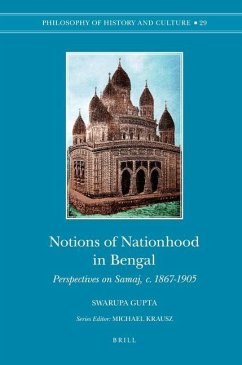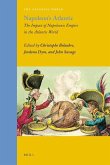This book reopens the debate on colonial nationalisms, going beyond derivative, borrowed, political and modernist paradigms. It introduces the conceptual category of samaj to demonstrate how indigenous socio-cultural origins in Bengal interacted with late-colonial discourses to produce the notion of a nation. Samaj (a historical society and an idea-in-practice) was a site for reconfiguring antecedents and negotiating fragmentation. Drawing on indigenous sources, this study shows how caste, class, ethnicity, region and community were refracted to conceptualise wider unities. The mapping of cultural continuities through change facilitates a more nuanced investigation of the ontology of nationhood, seeing it as related to, but more than political nationalism. It outlines a fresh paradigm for recalibrating postcolonial identities, offering interpretive strategies to mediate fragmentation.
Hinweis: Dieser Artikel kann nur an eine deutsche Lieferadresse ausgeliefert werden.
Hinweis: Dieser Artikel kann nur an eine deutsche Lieferadresse ausgeliefert werden.








